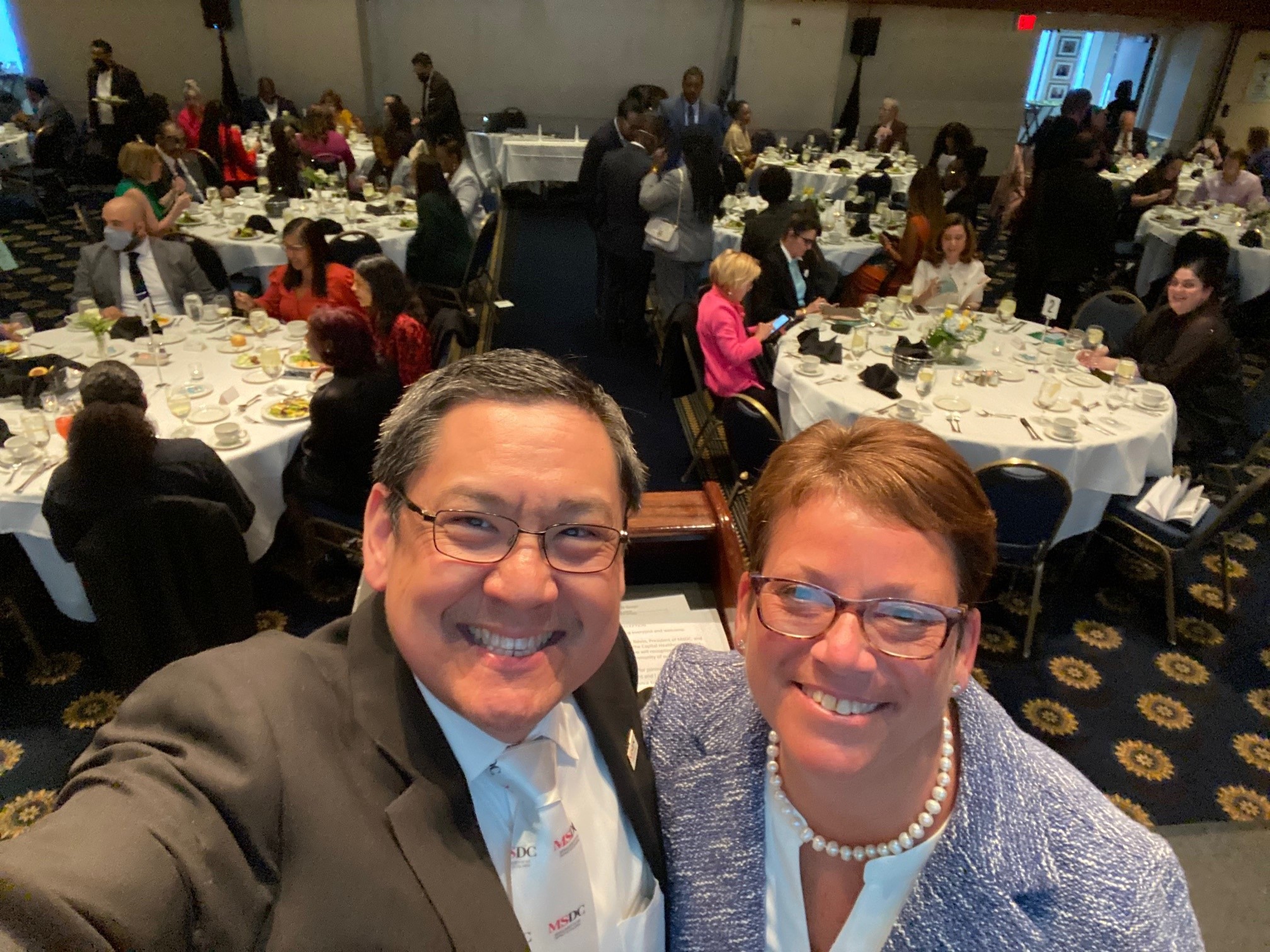Behavioral Health

Behavioral health is a major public health issue in the District of Columbia. Sadly, many of the legislative and regulatory initiatives around behavioral health are tied to other public health concerns, such as opioid addiction, maternal mortality, and health equity.
In partnership with the Washington Psychiatric Society, AMA, and American Psychiatric Association (APA), MSDC works to ensure that patients receive appropriate support for behavioral health issues, that the practice of psychiatry is supported in the District, and that psychiatrists are available to patients in the District.
MSDC was a proud supporter of the Behavioral Health Parity Act of 2017, which enshrined into law that all health plans offered by an insurance carrier meet federal requirements of the Wellstone/Domenici Mental Health Parity and Addiction Equity Act of 2008.
MSDC Statements and Testimony of Behavioral Health Issues
25th Council period information coming soon
Super Sleuth Dr. Tu
 Dr. Raymond Tu (L) and MSDC 2022 President Dr. Kirtsy Nevin (R) at 2022 Capital Healthcare Honors
Dr. Raymond Tu (L) and MSDC 2022 President Dr. Kirtsy Nevin (R) at 2022 Capital Healthcare Honors
Like a detective, as a child, Dr. Raymond Tu would comb through the Highlights magazine and head straight for the hidden-object puzzle pages asking readers to find specific hidden objects. “I was always very good at finding things and identifying patterns. We are all born with the same eyes, but the way information travels to our brains and the messages that are sent are different for everyone. I happen to have a skill for visual perception,” he said. His friends joke that it’s best to bring him along whenever they buy a new car since he can spot any dents or flaws.
Dr. Tu always wanted to pursue a career in medicine and was drawn to neuroradiology because it required him to apply his keen sense of observation. For him, the beauty of medicine and the human body is the mysteries it presents. “There are no limits to the problems and variety of problems that the human body can exhibit,” he said. In his field, he adheres to a strict patient examination pattern. “Examining patients must be done methodically, if not, doctors risk missing something. There is a pattern to radiology. It’s time to troubleshoot when something doesn’t fit the pattern.”
During his career, Dr. Tu has grown into a successful leader and today is the Chief Medical Officer of MedStar Family Choice in D.C. In this role, his team manages over 70,000 District Medicaid Enrollees. “I am passionate about making sure that the underserved have access to healthcare,” he said.
He is also a lecturer and offers insights to early-career physicians on the topics of transactional and relational personalities. “Physicians are taught how to be transactional. They conduct their examinations like going to a grocery store, they begin at the top of their list and work their way through it,” he said. Relational skills are harder to develop. “Relational personalities are successful at bringing people together. These are people who can walk into a room and find a commonality with the room’s occupants,” he said.
Dr. Tu enjoys being an “observational animal” as he calls it. And that extends beyond radiology. Dr. Tu has a strong appreciation for the fine arts, especially the Washington Color Field artists. “I enjoy their massive size and color. Contemporary canvasses are filled with big swabs of color,” he said. One of his favorite artists is Sam Gilliam, as well as other artists that contributed to the Washington Color Field series now on display at the Hirschhorn Museum.
Practicing in the District has the advantage of having several museums just beyond his doorstep. “I served on the board of the Corcoran Gallery, now the National Gallery of Art, for several years,” he said. He retells the story of a woman he shared a ride with from a Corcoran board meeting. “She told me how her husband collected art and it was piled everywhere. She threatened to throw it out if he didn’t find a new home for it. She referred to the art as junk,” he said. As the ride neared its destination, Dr. Tu learned that the woman talking about her husband’s art collection was none other than Olga Hirschhorn. “She was a very unassuming woman,” he added.
In addition to the board at The Corcoran, Dr. Tu has been a long-time member of MSDC and has served on the board, been President of the organization, and chaired the Finance Committee. “MSDC is a great organization. We have made a lot of progress toward our mission of ensuring the well-being of physicians.” According to Dr. Tu, “if you aren’t at the table, you are the one being eaten.” Dr. Tu encourages other physicians to become a part of important policy decisions impacting their career field.
Do you know a physician who should be profiled in the MSDC Spotlight Series? Submit a nomination to Robert Hay, hay@msdc.org, for a future story. MSDC membership is encouraged for featured physicians.
Sample of Legislation MSDC is Tracking in Behavioral Health
(see the whole list of bills here)
What does it do? The bill requires licensed health providers to complete 2 hours of CME on suicide prevention, assessment, and screening.
MSDC position: MSDC opposes the bill as written as the language does not encourage physician wellbeing or sufficient awareness of suicide prevention.
Current status: The bill had a hearing with the Committee on Health on June 10.
